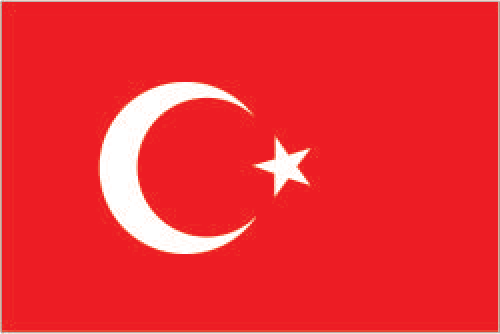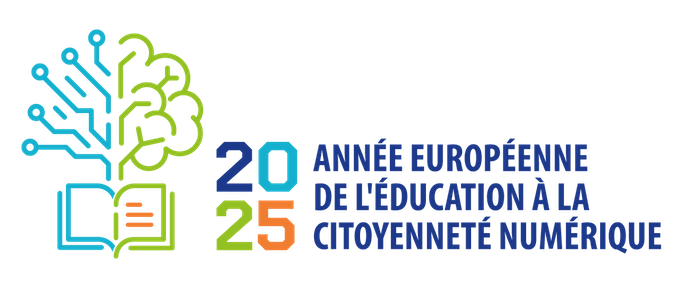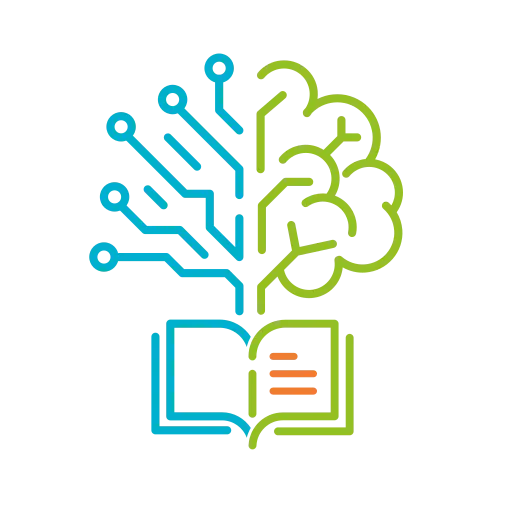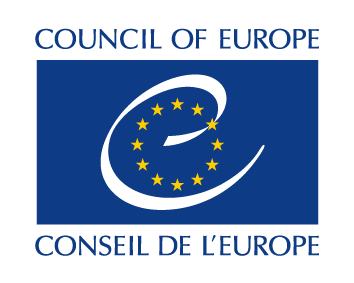- Turkish National Curriculum for Primary and Secondary Schools (Updated in 2017). The updated national curriculum, first implemented in the 2017-2018 school year, includes specific objectives related to digital citizenship education. It aims to develop students’ competencies in digital literacy, online safety, and the ethical use of digital tools, integrating these topics across various subjects and grade levels.
- Türkiye has started to implement “Türkiye Education Model” (Türkiye Maarif Model) at some grades at K12 level in 2024. The Türkiye Maarif Model includes skills related to the subcategories of the CoE DCE Program Framework. In this context, the integrated skills of the types of “information literacy, digital literacy, financial literacy, citizenship literacy, data literacy, sustainability literacy included in the curriculum were determined by associating them with the systems thinking integrated skills. These skills consist of nine sub-skills, and digital literacy skills come to the fore in the context of DCE Program Network. As a result, the components of Türkiye Maarif Model and the core skills of CoE DCE Program Framework combine at similar points and the country’s education policies are harmonised.
- The 12th Development Plan (2024–2028) outlines goals to improve digital infrastructure, address inequalities in technology access, and enhance digital skills through platforms like the Education Information Network (EBA) and Teacher Information Network (ÖBA). Awareness campaigns and training initiatives are also planned to raise awareness about digital risks for children, young people, and the elderly.
Country profile list

Türkiye
- Turkish National Curriculum for Primary and Secondary Schools. No information.
- The « Pilot Project on Digital Citizenship Education in Türkiye, » run by the Council of Europe in partnership with Türkiye’s Ministry of National Education, aims to promote human rights, democracy, and fundamental freedoms in schools. The project focuses on empowering students through digital citizenship education, covering areas like online behaviour, well-being online, and rights online. It involves adapting Council of Europe tools to the Turkish education system, conducting capacity-building for educators, and raising public awareness
- Türkiye Safer Internet Day Committee has many dissemination activities (see the link for all). Example – Safer Internet Centre Türkiye, in collaboration with the Access Providers Association (ESB) and other local NGOs have introduced the Safer Internet Truck with the aim that creating a platform for children and youth who have limited access to technology countrywide. This truck serves as a rolling education hub, teaching children about coding, virtual reality, and most importantly, the conscious and safe use of the internet. Since the beginning, it has visited over 200 schools in different provinces in Türkiye, welcoming on board over 80,000 children.
- Türkiye has a DCE website and initiatives supported by the Turkish Ministry of National Education (Milli Eğitim Bakanlığı) and the European Union. The website refers to the DCE handbook from the Council of Europe, it has its version in English and translated into Turkish. This website is part of Türkiye’s efforts to promote digital citizenship education. It provides resources, guidelines, and educational materials for teachers, parents, and students to foster responsible and ethical digital behaviour. . The website is being used by Turkish teachers and principals. It has about 10,000 visitors each month. Activities held in different cities are published as news.
- The « Digital Ecosystem for Teacher Training project » is being carried out in cooperation with the Ministry of National Education and UNICEF, with European Union funding. The main aim of the project is to strengthen the national institutional capacity in digital education processes by improving the knowledge and skills of teachers in order to increase the quality of educational services offered to students. The project aims to train 200,000 teachers to promote digital citizenship awareness and ethical behaviour.
Sources
There are plans to monitor and evaluate learning activities using Data-Based Planning and Management System. The system includes continuous monitoring, evaluation, and the use of learning analytics tools.
Türkiye evaluates its education strategies through systematic monitoring mandated by Law No. 7254 (2020). Public administrations, including MoNE, are required to collect and analyse data to monitor strategic plans, with findings included in annual activity reports.
Sources
Online survey with national authorities
1. Turkish National Curriculum for Primary and Secondary Schools. Stakeholders involved in the design:
– Ministry of National Education (MoNE): The primary body responsible for the overall design and formulation of the updated curriculum.
– Educational Experts and Academicians: Involved in the conceptual development and theoretical foundations of the curriculum.
-Non-Governmental Organizations (NGOs): the Turkish Education Association (TED) and the Education Reform Initiative (ERG) contributed to the design phase.
2. The Türkiye Maarif Model was developed with participation of all stakeholders. In the program development teams, 260 academicians from all branches and over 700 teachers who can best reflect their field experience have taken part-time positions. The number of academicians and teachers who work part-time to receive their opinions and suggestions at every stage of the program development process and the number of commission members who serve in the program development committees is approximately 3000.
During the preparation process of the skill-based curriculum, student opinions were received from 81 provinces and a survey was conducted with participation of 17 thousand students to determine the students’ expectations and needs.
Sources
Turkish National Curriculum for Primary and Secondary Schools. Stakeholders involved in the implementation:
– Ministry of National Education (MoNE): Overseeing the execution of the curriculum across the country.
– Provincial and District Education Directorates: Implementing the curriculum at local levels.
– School Administrators and Teachers: Directly involved in executing the new curriculum and educational practices in classrooms.
No information was found
- FATIH Project (Movement to Increase Opportunities and Technology). The FATIH Project, launched by the Turkish Ministry of National Education, aims to integrate information and communication technology (ICT) into the education system. It includes providing digital devices to students and teachers, developing digital educational content, and offering professional development for educators to effectively use technology in their teaching practices. The FATIH Project collaborates with various educational institutions, technology providers, and international partners to implement its activities.
- Safe Schooling and Distance Education Project by the Ministry of National Education Innovation and Education Technologies General Directorate. The project focuses on strengthening digital education infrastructure, developing new educational content, and supporting teacher professional development. The project involves collaboration with the Ministry of National Education Innovation and Education Technologies General Directorate, schools, and local education authorities.
- Digital Citizenship Education Hub. This hub, created by the Turkish government, focuses on promoting digital citizenship education through various programs and initiatives. It offers workshops, seminars, and resources for teachers and students to enhance their understanding of digital rights, responsibilities, and safety. This hub collaborates with the Ministry of National Education, schools, and educational institutions to promote digital citizenship education.
- EBA (Eğitim Bilişim Ağı): EBA, or Education Information Network, is an online platform created and supported by the Turkish Ministry of National Education (MoNE). It provides a wide range of digital educational resources, including e-books, videos, and interactive content, aimed at enhancing the quality of education. EBA includes modules and resources specifically designed to teach digital citizenship, covering topics like online safety, digital ethics, and responsible internet usage. EBA collaborates with the Ministry of National Education, local schools, and international educational organizations.
- Digital Skills Academy is a specialized academic institution that offers distinguished and qualitative technical education, focusing on building digital skills and developing administrative capabilities. It provides an educational environment that stimulates creativity, supports development and innovation, and keeps pace with modern trends. The Academy offers various programs that include digital skills, cybersecurity, digital business, digital transformation, and digital education.
- ÖBA (Öğretmen Bilişim Ağı) is an online platform created and supported by MoNE. It provides online trainings for teachers. ÖBA has online contents for teachers to develop their digital skills. There is also an online Digital Citizenship Course for teachers.About 50000 teachers got this training.
Sources
No information found
- Member of DCE Promoters Network
- The INHOPE network
- The SIC+ (Safer Internet Centre plus)
- Türkiye has a DCE website and initiatives supported by the Turkish Ministry of National Education (Milli Eğitim Bakanlığı) and the European Union. The website refers to the DCE handbook from the Council of Europe, it has its version in English and translated into Turkish. This website is part of Türkiye’s efforts to promote digital citizenship education. It provides resources, guidelines, and educational materials for teachers, parents, and students to foster responsible and ethical digital behaviour. It is not clear, however, who uses the website and how often
- Building Trust in media in Southeast Europe and Türkiye Project is funded by the EU and UNESCO. It places focus on strengthening freedom of expression, access to information, free, independent and pluralistic media, ensuring that journalists and media are key drivers for democratic, sustainable and peaceful development in the region (Albania, Bosnia and Herzegovina, North Macedonia (the Former Yugoslav Republic of Macedonia), Montenegro, Serbia and Türkiye)
- Digital Citizenship Education in Türkiye is a horizontal facility project of EC and CoE for Western Balkans and Türkiye. It will last 30 months.DG of Basic Education is the coordinator and DG of Innovation and Educational Technologies is giving technical support. The aim of the project is empowering secondary school students by DCE. They are piloting with 14 schools from different regions of Türkiye. Materials for students, teachers and parents are being developed. Online teacher training and web based online games are being created.
- Member of Commission Working group on Schools
Sources
- https://www.coe.int/en/web/digital-citizenship-education/promoters#{%22245884893%22:[25]}
- https://inhope.org/EN/our-story
- https://www.betterinternetforkids.eu/policy/sicplus
- https://dceturkiye.eba.gov.tr/?page_id=4031
- https://europeanjournalists.org/projects/building-trust-in-media-in-south-east-europe-and-turkey/
- Online survey with national authorities
Training on DCE to teachers and other professionals:
No response from the national authorities in the online survey.
Translation and dissemination of DCE Recommendation:
No response from the national authorities in the online survey
Nous contacter
Service de l’Éducation
Conseil de l’Europe
Agora Building
1, Quai Jacoutot
67075 Strasbourg Cedex
France


